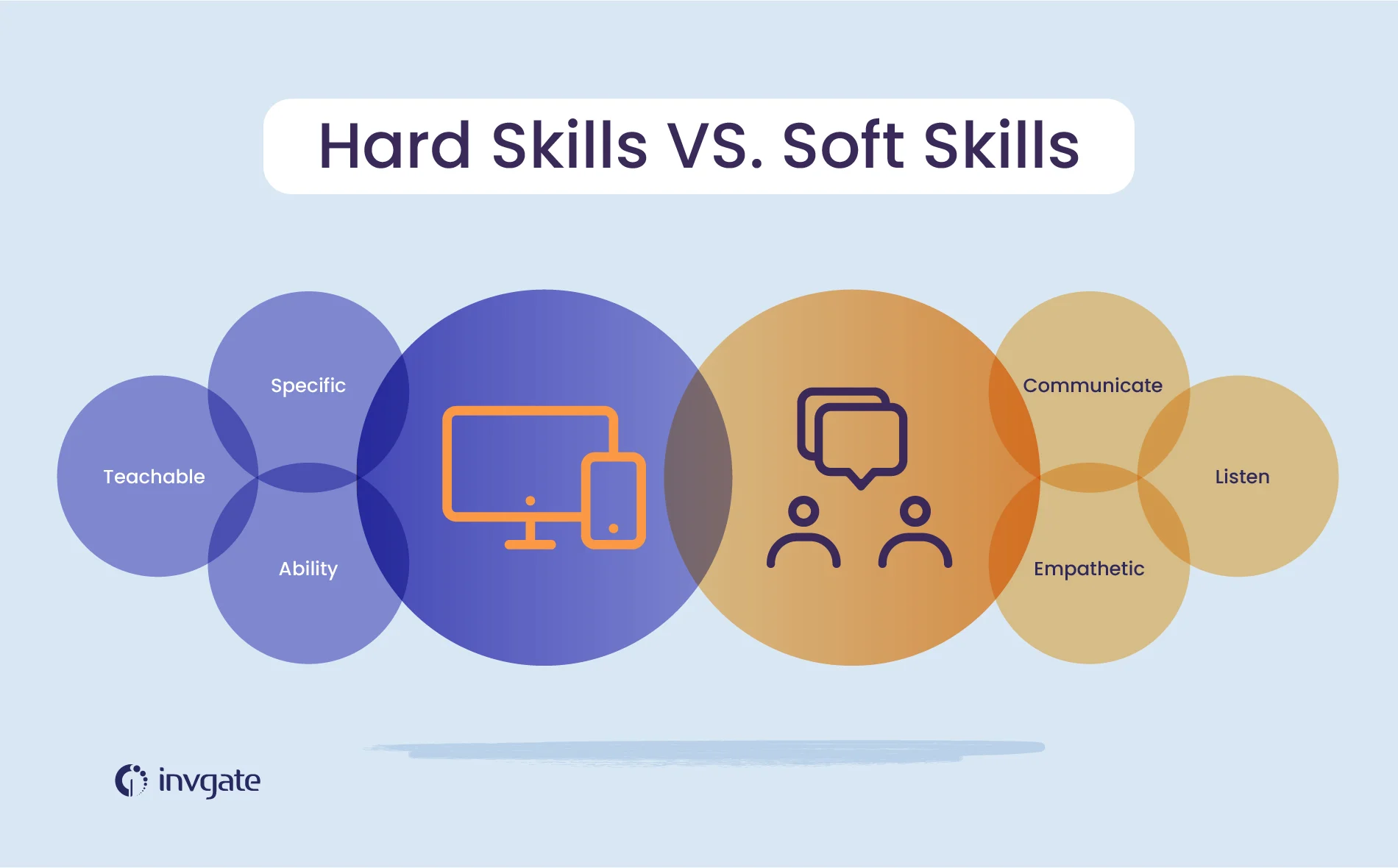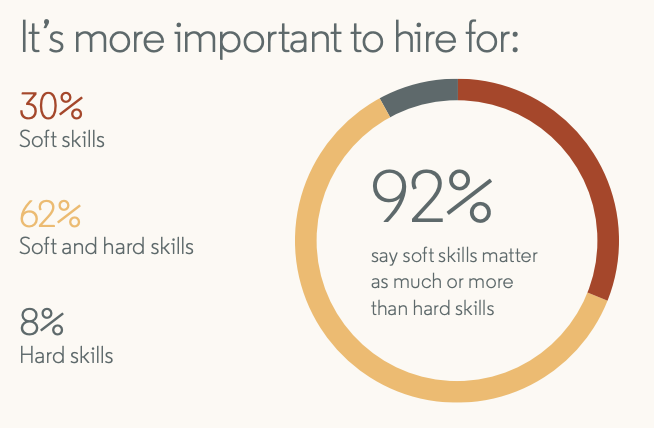By Anna Tsekani,
Soft skills are becoming today an internal part of the working place. As time passes, people are becoming more qualified, educated, and trained, but standing out in our competitive society is not always easy. Soft skills appear to be the new “tendency” in the workplace because they provide us with a comprehensive concept of people/employees.
Companies around the world are scrambling to hire employees with “hard” skills, but as technology continues to change, at the same time, the nature of work and human interaction is also changing.
While technical skills are important. Research shows that so-called “soft” skills are consistently among the traits that companies require the most, particularly in light of the disruption caused by COVID-19.
Soft skills are personality traits and behaviors that will assist candidates in getting hired and succeeding more easily in the working place. Soft skills, as opposed to technical or “hard” skills, are interpersonal and behavioral skills that help you work well with others and advance in your career.
Soft skills are abilities that pertain to how you work and interact with others. Communication, teamwork, and other interpersonal skills are popular soft skills. At the same time, soft skills tend to be more important in some working place, since on the one hand are difficult to be taught and on the other hand when the interaction with the people pays a vital and internal part of the job. Hard skills are technical and job-specific, whereas soft skills are not.
Soft skills are frequently transferable between jobs and industries. So, what is the distinction between soft and hard skills? While “hard skills” generally refer to specific and technical knowledge sets, soft skills in the workplace are more cross-functional by definition. Soft skills, rather than being associated with a specific task, are the characteristics that enable employees to be effective, as both individual contributors and colleagues.

Employers frequently request a combination of hard and soft skills in job descriptions. Hard skills are technical knowledge and training, whereas soft skills are personality traits like leadership, communication, and time management, as we mentioned above. Both types of skills are required to perform and advance in most jobs.
Soft skills are personal habits and characteristics that shape how you work, both independently and collaboratively. Many employers value effective communication as a key soft skill. Other qualities to consider include dependability, effective teamwork, and active listening.
Soft skills are essential for your career and job search. While hard skills are required to perform technical tasks in the workplace, soft skills are required to create a positive and functional work environment. As a result, employers frequently seek candidates with demonstrated soft and hard skills. Some employers may prefer candidates with a stronger set of soft skills over candidates with a strong set of hard skills, as soft skills can be more difficult to develop.
On a more practical level, soft skills can help not only in the selection of candidates but also can empower the team. Good communication skills are essential for successful collaboration. Active listening to colleagues and willing participation in conflict resolution to mitigate the effects of miscommunications, as well as keeping projects and organizational initiatives on track, are examples of communication skills.

Simply put, soft skills distinguish the highest-performing employees and organizations. In fact, they are so important that, according to LinkedIn research, 89% of new employees leave a company because they lack soft skills.
Soft skills in the workplace are becoming increasingly important, as businesses seek to add value to their operations. According to a Wonderlic study, 92% of hiring managers consider soft skills to be “essential” or “very important” when making hiring decisions. Furthermore, many employers said that soft skills were more important than technical skills.
Even the most technically gifted employees will need to demonstrate soft skills, such as dependability and creative thinking, to thrive in today’s workplaces. Companies simply cannot afford to ignore these characteristics any longer.
Nowadays, apart from soft skills, many organizations and managers are concerned that soft skills cannot easily be taught. While they may be more difficult to communicate than technical skills and improvements may be more difficult to measure, it is more than possible to help employees advance in these areas.
Upskilling today’s employees is easier than in the past because not only are people more familiar with these terms but there is also an abundance of training courses that can easily evolve someone. Nowadays, soft skills are a part of our daily lives, even if we do not realize it. So, most of the time, we are trained without even realizing it in school, college, or in our daily lives.
References
- Soft skills in the workplace: Why they matter and how to hire for them, peoplescout.com, Available here
- Soft Skills: Definitions and Top Examples, indeed.com, Available here
- Hard Skills vs. Soft Skills: What’s the Difference?, indeed.com, Available here
- Soft Skills in the Workplace: Why They Matter for Your Organization, emeritus.org, Available here




